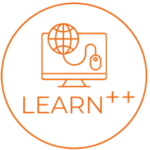How to enhance learning outcomes for school students?
Unleashing Effective Pedagogies: A Guide for Grades 1 to 12
Teaching and learning pedagogy is the heartbeat of education, influencing how knowledge is imparted and absorbed. In the dynamic landscape of grades 1 to 12, a student-centric, experiential, and active learning-focused approach emerges as the gold standard. Let’s delve into some of the most potent pedagogical approaches that schools can adopt to elevate learning outcomes.
-
- Student-Centered Learning: Putting Pupils in the Pilot Seat
Embrace a paradigm shift where students take the lead. Student-centred learning encourages active participation, self-directed inquiry, and collaborative problem-solving. By tailoring teaching methods to individual needs, educators cultivate a sense of ownership, fostering a lifelong love for learning. - Experiential Learning, Beyond the Classroom Walls:
Move beyond textbooks and embrace experiential learning. Whether through field trips, experiments, or hands-on projects, this approach immerses students in real-world scenarios. By connecting theory to practise, students grasp concepts more profoundly and develop critical thinking skills. - Active Learning: Engaging Minds and Igniting Understanding
Passive learning has its limitations. Active learning, on the other hand, involves students in the learning process through discussions, debates, and problem-solving activities. This fosters deeper comprehension, as students are not just recipients but active contributors to their education. - Flipped Classroom Model: Inverting Traditional Teaching
Challenge the traditional classroom setup with the flipped model. Students engage with instructional content at home through videos or online materials and use class time for discussions and application. This maximises face-to-face interactions, making learning more dynamic and responsive. - Inquiry-Based Learning: Cultivating Curiosity
Nurture the innate curiosity of students through inquiry-based learning. Encourage them to ask questions, explore topics, and find solutions. This approach not only enhances research and problem-solving skills but also fuels a passion for learning driven by curiosity. - Project-Based Learning: Turning Classrooms into Laboratories
Transform classrooms into hubs of innovation with project-based learning. Students collaborate on projects, applying theoretical knowledge to real-world challenges. This not only deepens understanding but also hones teamwork, time management, and presentation skills. - Differentiated Instruction: Catering to Diverse Needs
Recognise the diversity in learning styles and paces within a classroom. Differentiated instruction tailors teaching to accommodate varied needs, ensuring every student grasps essential concepts. This personalised approach nurtures a supportive learning environment.
- Student-Centered Learning: Putting Pupils in the Pilot Seat
In the intricate tapestry of grades 1 to 12, effective teaching and learning pedagogies are the threads that weave educational success. By adopting student-centred, experiential, and active learning-focused approaches, schools can sculpt an environment where knowledge isn’t just transferred but absorbed, understood, and applied. This is the foundation for nurturing not just academically adept individuals but lifelong learners prepared for the challenges of the future.
Author
Dr R K Suresh
ceo@learnglobe.in
